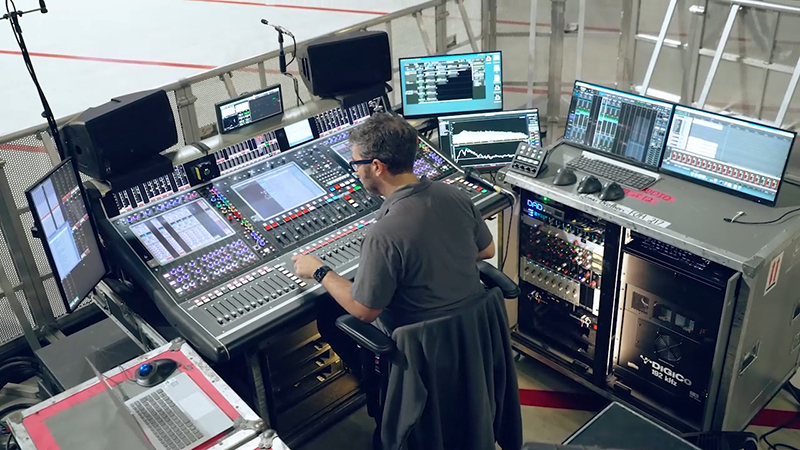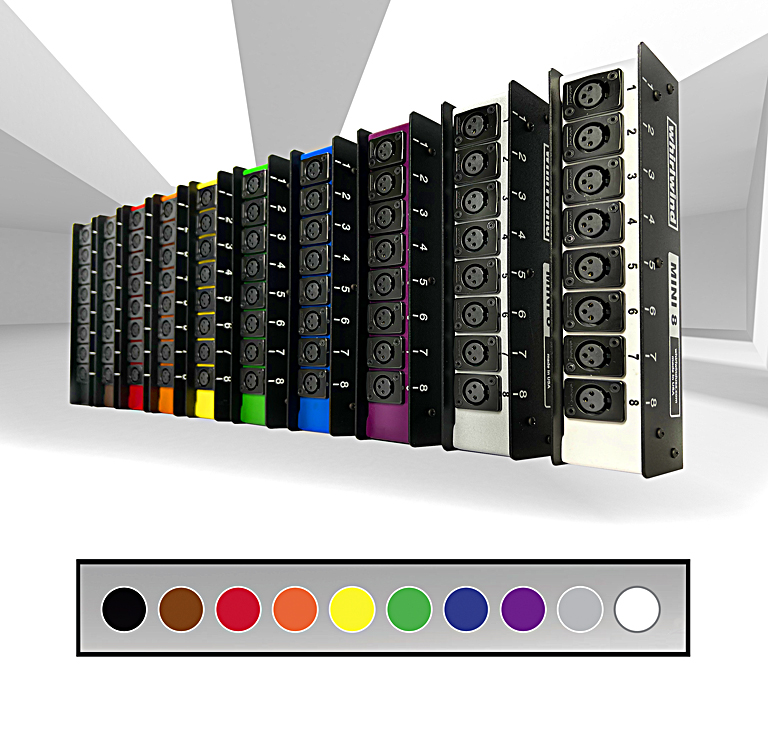
SAN FRANCISCO – SFCM has been using its Dante audio networking system with A-T microphones and headphones to safely keep the music going during the current crisis period. Since the pandemic began more than a year ago, the conservatory has streamed more than 200 free student SFCM concerts online.
More details from Audio-Technica (www.audio-technica.com):

San Francisco was the first city in the United States to issue a mandatory shelter-in-place order due to COVID-19. March 17 marked the one-year anniversary of that order, which was one of the strictest in the nation. The city, and by extension the San Francisco Conservatory of Music (SFCM), has gone beyond national guidelines to prioritize well-being and continues to put the safety of its community first.
However, during these challenging times, SFCM has continued to provide students with a first-class education, consistently adapting to the (ever-changing) new normal with a creative Bay Area spirit. As part of the technology that made this possible, Jason O’Connell, Director of Recording Services at SFCM (who studied at McGill University in Quebec under legendary GRAMMY Award-winning engineer, producer and technologist George Massenburg), chose headphone and microphone solutions from Audio-Technica, a leading innovator in transducer technology for over 50 years.
“When we started our Technology and Applied Composition program, we had a lab of computers with 14 workstations, and we really needed to focus in on some headphones for the program that were closed back so they wouldn’t bleed too much, but also sounded great and were affordable,” stated O’Connell. “So we tested a wide variety of different headphones by various manufacturers. We all just really liked the sound of the Audio-Technica ATH-M50x headphones – they were super-comfortable to wear, and they were also affordable. After using them for a while, we noticed that they were becoming popular because students started buying them for themselves to use as their reference headphones. They work great in the studio, especially when we give musicians a click track, because they’re really good at isolating the clicks so they don’t bleed into the recording. And now that we’re doing the Dante setups throughout the Conservatory, we have them in all of the Dante rooms.”
Installed throughout campus, the Dante system enables students to play with others from separate rooms as if they were right next to each other, with latency-free audio networking. Woodwind and brass players are able to perform in orchestras, vocalists record operas, and RJAM (Roots, Jazz, and American Music) students can now play in combos.
The Dante network allows O’Connell to do virtual orchestra projects with Audio-Technica headphones playing a key role. “We just recorded an opera with 15 singers, woodwind players and brass players all in separate rooms. And then we had three halls set up with socially distanced strings, percussion, and other instruments that can safely be in the same room together. So you literally have 50 musicians recording whole operatic works all on A-T headphones. They are super great at isolating the sound, and they just sound really good.”
Durability was also a key factor for O’Connell, as the headphones would be used by many students throughout the program. “I don’t think we’ve ever had a broken set of headphones in the last six years,” stated O’Connell, “and they get used a lot, I mean a lot!” He continued, “The thing that’s great is they have this removable cable, so if you ever have a cable issue, you just take the cable out and you put a new one in.”
When the pandemic hit, SFCM had to re-think its courses and pivot to make sure it would keep its educational programs alive. “Initially we purchased numerous Audio-Technica ATR2500-USB Cardioid Condenser Microphones for every single student in our orchestra so we could record a composition by John Luther Adams titled Become Ocean,” stated O’Connell. “We taught literally every student how to place their microphone for recording their instrument and then had each one record their part to a click track at home using REAPER (Rapid Environment for Audio Production, Engineering, and Recording), a digital audio workstation and MIDI sequencer software program. It was 60 or 70 people tracking their parts. We then basically mixed it all together as a final product that we delivered for our large ensemble piece at the end of last year. It was not merely adequate – it was spectacular! We then took all those Audio-Technica mics and put them in every faculty studio to support the Zoom lessons that they do with their students. The quality is great, they are very affordable, and they are super easy and intuitive to set up and use. Overall, we have been very happy with our Audio-Technica headphones and microphones, and they have become an integral part of our workflow. They have definitely helped keep the music alive and allowed us to keep teaching our students during this current health crisis. We are all thankful for that.”




